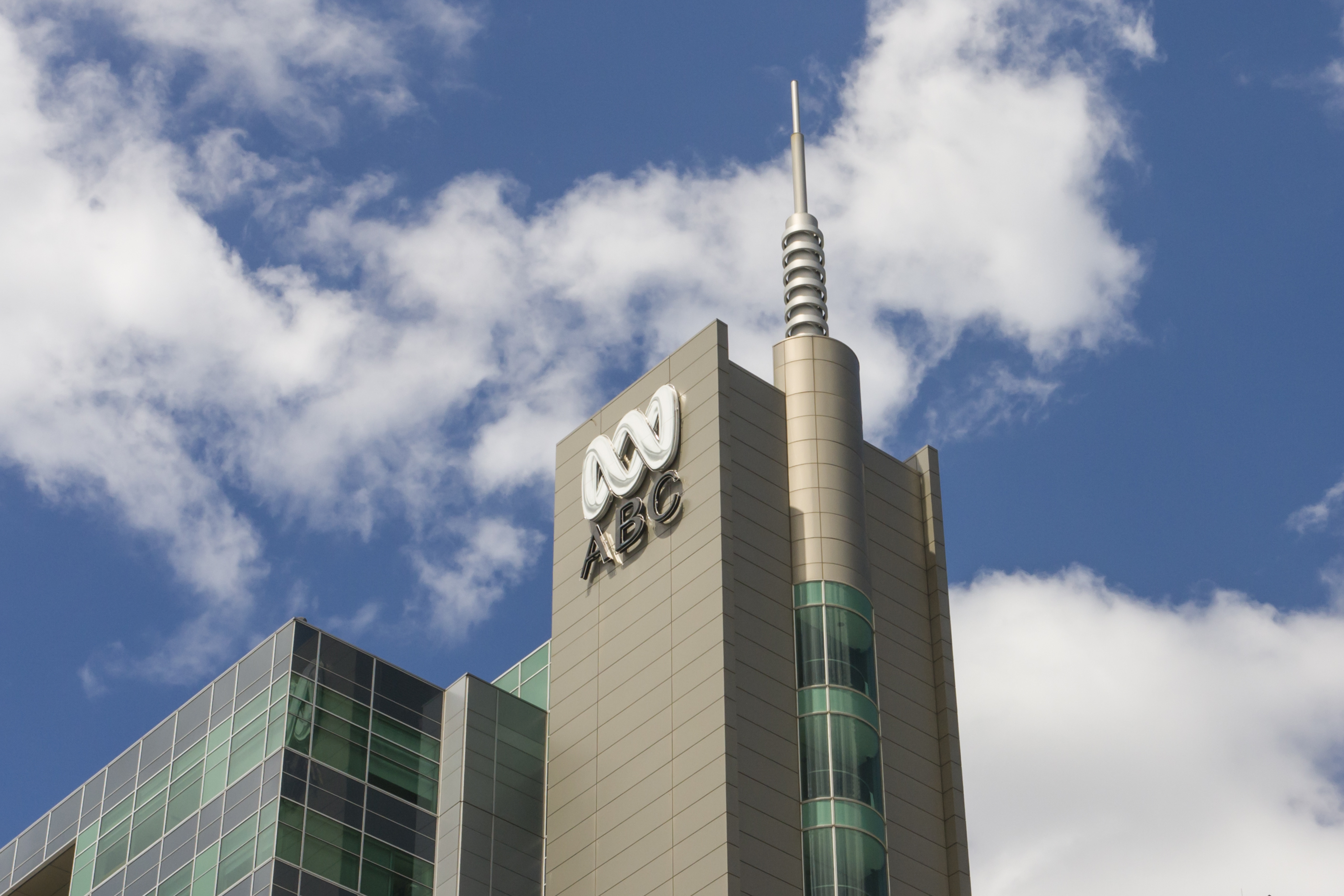By Alan Sunderland, Office of Journalism Advocate, Fourth Estate
This article was originally published by Fourth Estate. Our thanks to Fourth Estate and Alan Sunderland.
Two things. When all is said and done, protecting public broadcasting comes down to just two things. We’ll get to what they are in a moment.
But first, indulge me in a little reflection. This year I stepped down as Editorial Director of the Australian Broadcasting Corporation (ABC) after 40 years in public interest journalism. I divided my time fairly equally between the ABC and its sister public broadcaster here in Australia, the Special Broadcasting Service (SBS). I spent maybe thirty years doing journalism and then another ten defending it against attack while at the same time working to lift and maintain editorial standards.
I plan to keep thinking, talking and writing about public interest journalism – including public broadcasting – through my involvement with organisations like the Fourth Estate in the US and the Walkley Foundation in Australia, because it seems to me that the world has never been in greater need of good journalism, journalism that is not beholden to any special interest. And at its best, that’s what public broadcasting can deliver.
It might seem strange, then, that just when it is needed most, it feels as though public broadcasting has never been under greater attack. In the US, President Trump has recommended a total phase out of all public funding. In Switzerland, the public broadcaster had to withstand a political campaign culminating in a referendum designed to abolish it, while here in Australia the ruling party passed a resolution calling on the Government to privatise the public broadcaster. Around the world, similar pressures are being brought to bear. Where abolition can’t be achieved, the common refrain is that public broadcasters have become too dominant and powerful, and their budgets need to be significantly cut (examples can be found here, here and here).
It might seem strange, then, that just when it is needed most, it feels as though public broadcasting has never been under greater attack.
In one sense, this is nothing new. When I started at the ABC as a cadet journalist in 1979, the broadcaster was still recovering from budget cuts imposed by an incoming conservative government that had forced it to cut its staffing by several hundred to cope with its lowest funding in almost 20 years. In the years that followed, a familiar pattern played out – cuts in funding, demands for the ABC to be sold off or funded by advertising instead of taxpayer dollars, and a concerted campaign by media companies for public broadcasters like the ABC to be dismantled.
Fast forward thirty years, and the rhetoric hasn’t changed much at all. Governments are still under pressure to cut the funding of public broadcasters and big media companies are still calling for them to be brought to heel, broken up or sold off. But it seems to me that one thing has changed.
Forty years ago, when I first experienced these campaigns to gut public broadcasting, other media organisations were enjoying massive profits and strong growth. In Australia, television stations were doubling their profits and newspapers had a comfortable monopoly on classified advertising. So while they disliked the ABC every bit as much then as now, their campaign against public broadcasting was a part-time hobby rather than a daily obsession. In 2019, when the collapsing business model for private news organisations is all too clear and pressing, eliminating the publicly funded competition is no longer a hobby, it’s a life or death struggle.
The reality in Australia (and I suspect this is reflected in many other developed countries except the US) is that public broadcasting is beginning to dominate in ways that really worries other media organisations. The ABC is regularly ranked number two or three in most popular online news sites, despite not having many of the commercial and popular links that drive people to rival sites. On social media platforms, the ABC has led the way and dominated on emerging platforms. After decades of being outpaced by commercial rivals on expensive and complex election coverage broadcasts, the ABC is now the highest rating election night broadcaster. And when it comes to earning the trust of the public, the ABC is far and away the most trusted source of news, as is almost every public broadcaster around the world in the markets where they operate. All of that puts a huge target on the organisation’s back, even as the public demonstrates that it values the ABC more and more.
And when it comes to earning the trust of the public, the ABC is far and away the most trusted source of news, as is almost every public broadcaster around the world in the markets where they operate.
So let’s turn to the two things that are necessary, in my view, to protect public broadcasting for the future. The first is independence and the second is accountability. A strong and successful public broadcaster will be independent from the government and accountable to the people.
Independence from the government is challenging when that’s where public broadcasters get their funding. The idea that you shouldn’t bite the hand that feeds you is widespread and superficially persuasive, especially when governments can and do spend a lot of time badgering, bullying and pressuring the broadcaster to do their job in a certain way. This bullying can and does include both real and perceived threats to funding. In my time at the ABC I received plenty of angry phone calls from the highest levels of government, more than a few outraged and splenetic letters and texts, and regular formal complaints accusing us of being biased, often combined with headlines in major newspapers calling us un-Australian. These approaches were sometimes disguised as ‘tough love’, a demand that the ABC perform its role properly coupled with pressure to do it more cheaply and efficiently. The truth is, though, that the body worst placed to decide if a public broadcaster is acting appropriately is the government of the day, since some of the toughest and most confronting reporting any decent media organisation will do is to critically examine and question the decisions made by those in power. A democratically elected government will always feel it has a mandate to deliver policies that benefit the nation, and will struggle to understand why a publicly-funded broadcaster doesn’t reflect that too, since it also represents the people. In my experience, governments will regularly struggle to understand why they can’t control something they are funding, and so resistance to government pressure is an essential feature of any public broadcaster. That independence is a cornerstone of the public’s trust.
However, it is the second crucial factor in protecting and defending public broadcasting that is equally vital – accountability to the people. There is a real danger that a public broadcaster that thumbs its nose at the government of the day and claims a higher responsibility and level of independence will become arrogant and self-serving. One of the other great criticisms of the ABC during my time there was that it was accountable to no one – not to market forces, not to the Government, not even at times to its own Board. And while I don’t accept for a moment that was true, it raises a vital issue for all public broadcasters. If you want to be truly independent of the government, protected from market forces and not dependent on ratings to drive advertising revenue, then who are you ultimately accountable to?
Public broadcasters need to be accountable to the public, not the government of the day.
The answer, of course, is that public broadcasters need to be accountable to the public, not the government of the day. The ABC has been (so far) protected from being shut own or sold off not because of the affection of politicians, but because it is demonstrably a valued and trusted source of news and entertainment. The challenge for all public broadcasters is how to maintain and build that level of trust. The single most important way of doing that is to genuinely demonstrate that you consider yourself accountable to the public – you will create content that you believe serves the community’s needs, you will be driven only by your role to report in the public interest instead of pushing barrows, protecting narrow interests or following commercial imperatives, and you will actively build a communication with the public to hear and reflect on what they say.
I believe that last challenge – to genuinely develop a two-way relationship with the communities they serve – is the biggest one facing public broadcasters. Funding cuts come and go, governments come and go, and our media rivals will always tend to wish we weren’t around competing with their business models. But if public broadcasters can demonstrate their value to the public that ultimately funds them, if they can genuinely listen to and reflect on what the public says it wants from them in an era of fake news, spin and polarisation, then there will be no shortage of supporters ready to man the barricades when times are tough. In my view, that means more than just delivering great content. It also means establishing genuine public forums where views can be exchanged, regular surveys of audiences, and a commitment to consistently challenge an organisation’s own views in the face of that feedback. If public broadcasters really want to maintain that they belong to the people and not the government, then the price of that independence from government is genuine accountability to the people.

Alan Sunderland is the former Editorial Director of the Australian Broadcasting Corporation.
He is now the Office of Journalism Advocate at Fourth Estate, a Public Benefit organisation with a mission “To contribute to a healthy society by fostering, supporting and incubating a sustainable and vibrant free press”.
The original article can be found at here.
Header Image: ABC South Brisbane. Credit: Ash Kyd/Creative Commons

